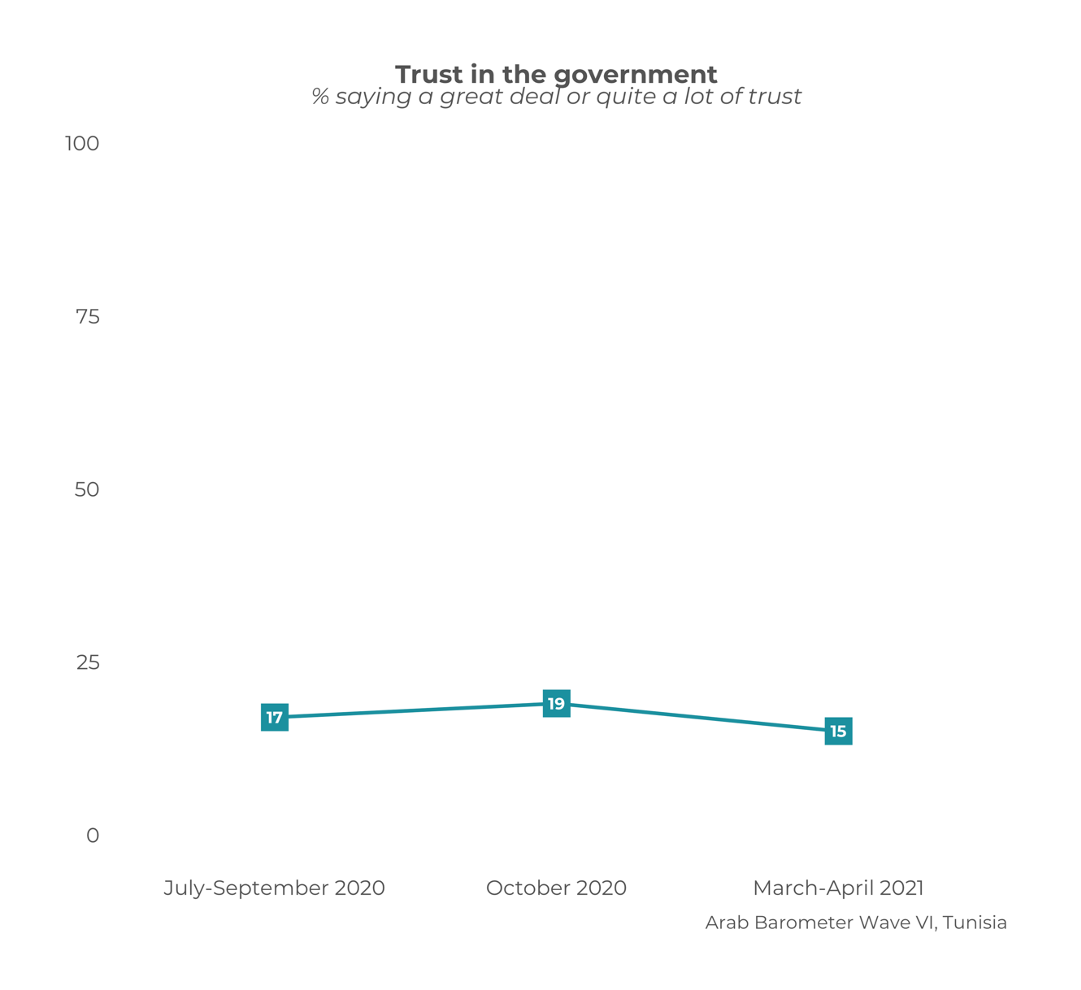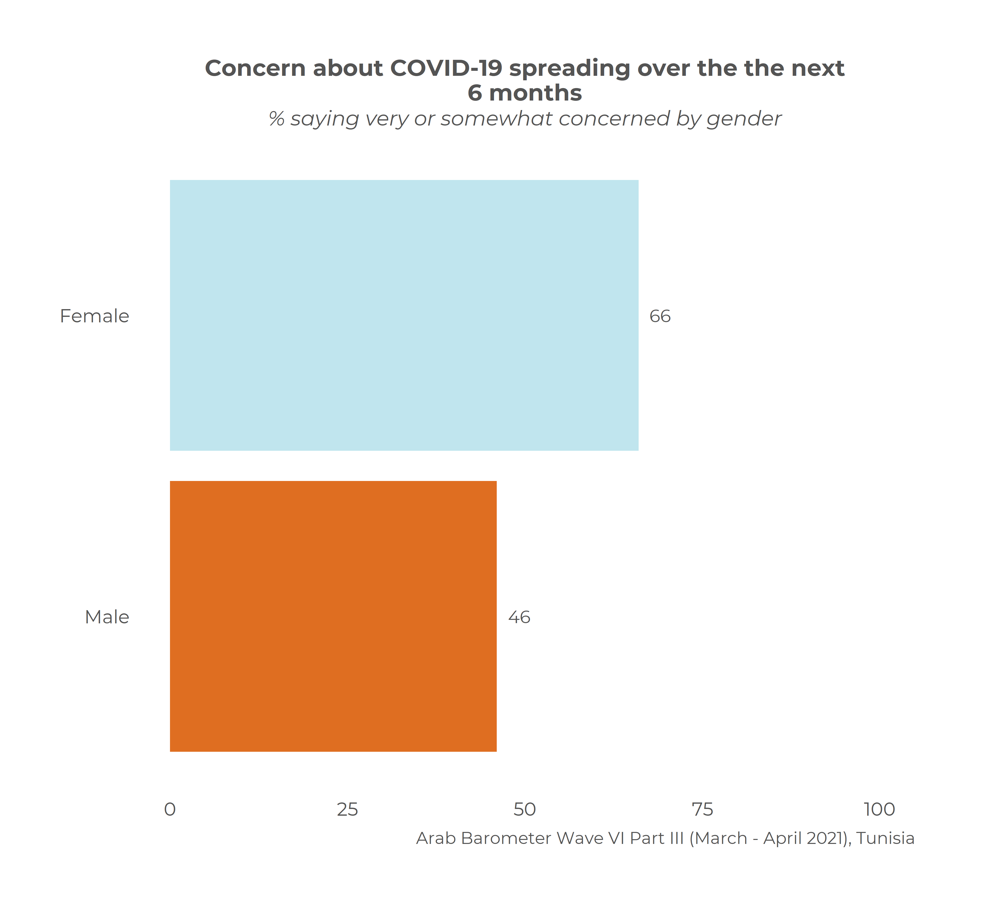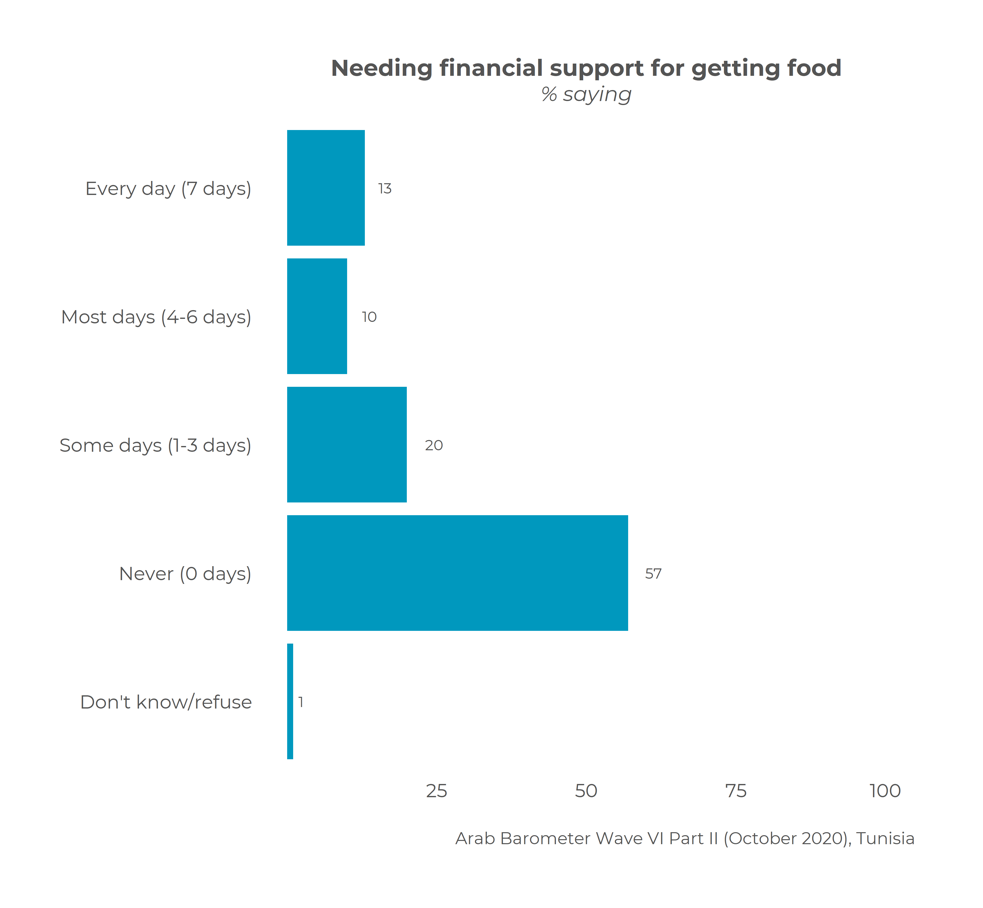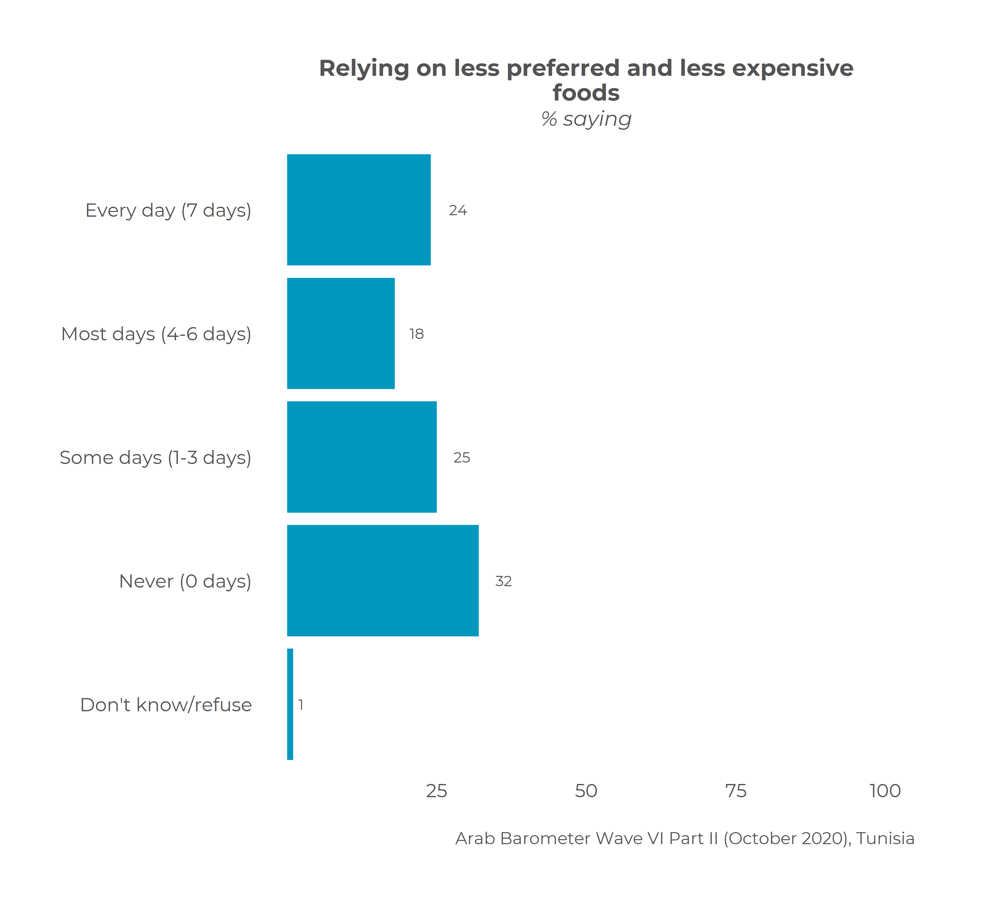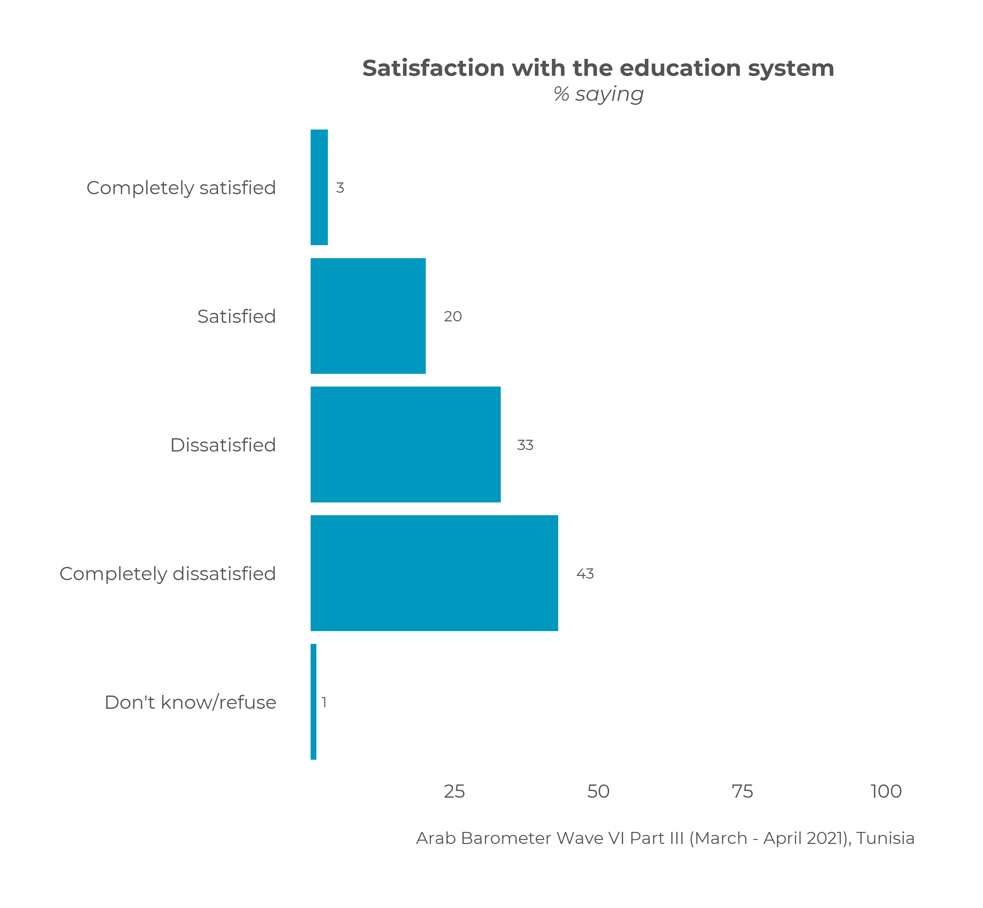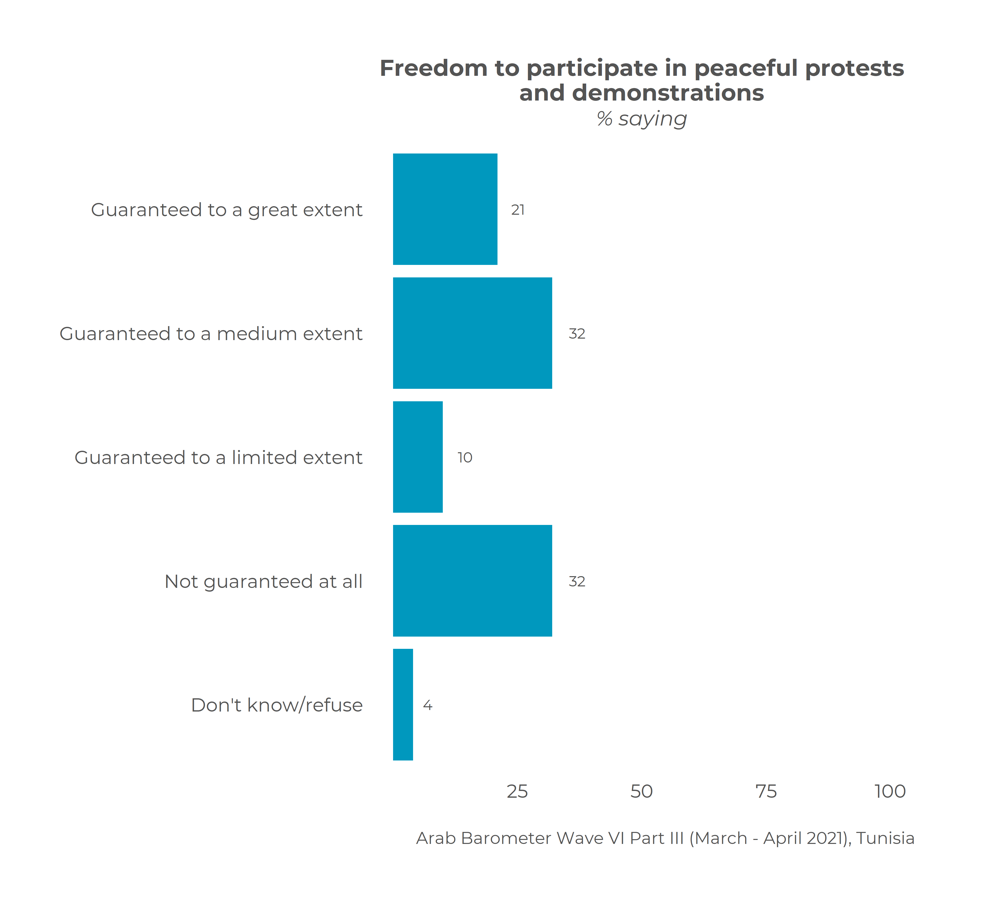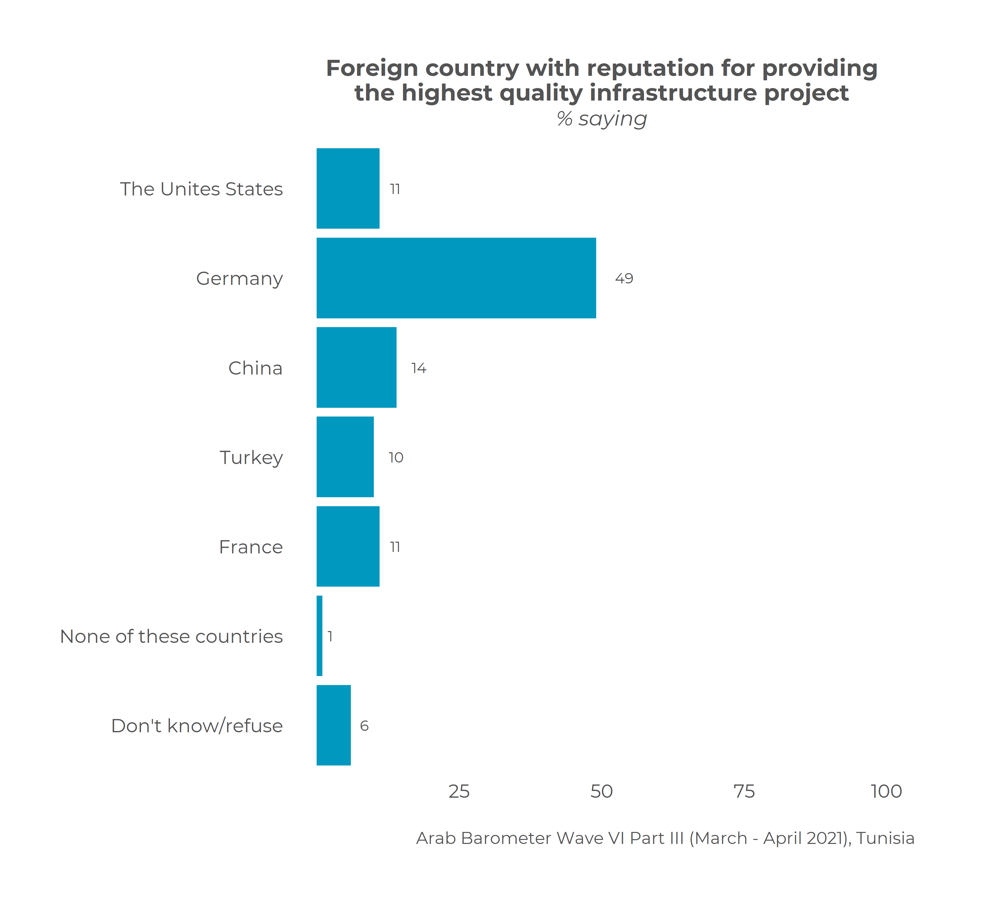The July 2021 political events in Tunisia were not entirely unexpected given the country’s ongoing challenges on a number of fronts. Deteriorating economic conditions combined with the high death toll from the COVID pandemic crystalized failure of the political system to address the basic problems facing ordinary Tunisians. The failure to undertake needed reforms over the past decade produced a situation where many Tunisians celebrated a major change in the political system.
Results from Arab Barometer surveys demonstrate the degree to which Tunisians are frustrated with the performance of their government. Over the course of three surveys conducted between July 2020 and March 2021, the downward trend is clear. Last summer, before Tunisia had experienced a significant number of COVID infections, citizens were relatively pleased with the government’s handling of the crisis. The government’s performance on this issue was relatively strong, particularly compared with major outbreaks that had ravaged countries such as the U.S., Italy, and Spain at the time.
Yet, as the first and second waves of the pandemic hit Tunisia, citizens began to lose faith in their government and its ability to manage the public health crisis. Views of the government’s handling fell by 34 points between July and October 2020 and only recovered slightly by March 2021, shortly before the onset of the largest wave of infections to hit Tunisia to date. Surely, ratings of the government’s handling fell further after this survey.
The surveys make clear that Tunisians are deeply worried about the spread of COVID, yet this has not been their primary concern over the past year. In none of the three surveys did concern about COVID exceed concern about the country’s economic situation. In October 2020, during a wave of infections, an equal percentage of Tunisians were primarily concerned about COVID and the economy. However, in the July 2020 and March 2021 surveys, concern about the economy was far higher than for COVID. This is due to the fact that fewer than one-in-ten Tunisians rate economic conditions as good, which continues a long but steady decline on this measure over the last decade.
The challenge of COVID has also exacerbated the economic situation. Arab Barometer’s surveys make clear that citizens perceive an increase in economic inequality as a result of the pandemic. Most agree that the effects of COVID have been significantly greater on those who are poor and other disadvantaged groups such as migrants. Similarly, the effects on employment appear to be greater on those who are poorer than the better off in society.
The situation has also affected views of the education and health care systems. As COVID has stressed hospitals and the school year has been affected, citizens are less likely to rate either system as good in March 2021 compared with July 2020.
Meanwhile, many citizens are concerned that their basic civil rights are not ensured. Despite having their basic rights enshrined in the constitution, just half say the ability to demonstrate peacefully is guaranteed. In part, this may be due to restrictions on gathering put in place to limit the spread of COVID. However, the violent police crackdowns on demonstrators that had started even before the pandemic likely also play a role.
Addressing the myriad concerns of Tunisians will be difficult, but the surveys also point out some of the particular challenges faced by women. One long-standing issue remains the relatively low labor force participation rate for women in Tunisia and across MENA more broadly. Results from Arab Barometer demonstrate that rather than cultural barriers, Tunisians believe the most pressing limitations on women entering the workforce are lack of transportation, lack of childcare, and relatively low wages.
In world affairs, Tunisians hold positive views of a number of foreign countries, in particular Germany, China, and Turkey. However, across a range of questions, Germany is the clear winner. Views of the U.S. and France are less positive, but are more positive than for Saudi Arabia or Iran.
These are among the main findings of three nationally representative telephone surveys conducted in Tunisia during the course of 2020-1 using a random digit dialing (RDD). Between July 2020 and March 2021, we interviewed 3,208 Tunisian citizens to track changes in their evaluations of their conditions over time during the pandemic. The studies are part of Arab Barometer’s sixth wave which was carried out in eight MENA countries. Arab Barometer’s sixth wave is the only publicly available survey that captures the changing sentiments of citizens across MENA during the unprecedented times of the COVID-19 pandemic. Additional information about the surveys can be found in the links below:
You can read the full Tunisia report here:
Tunisia Country Report 2020-2021